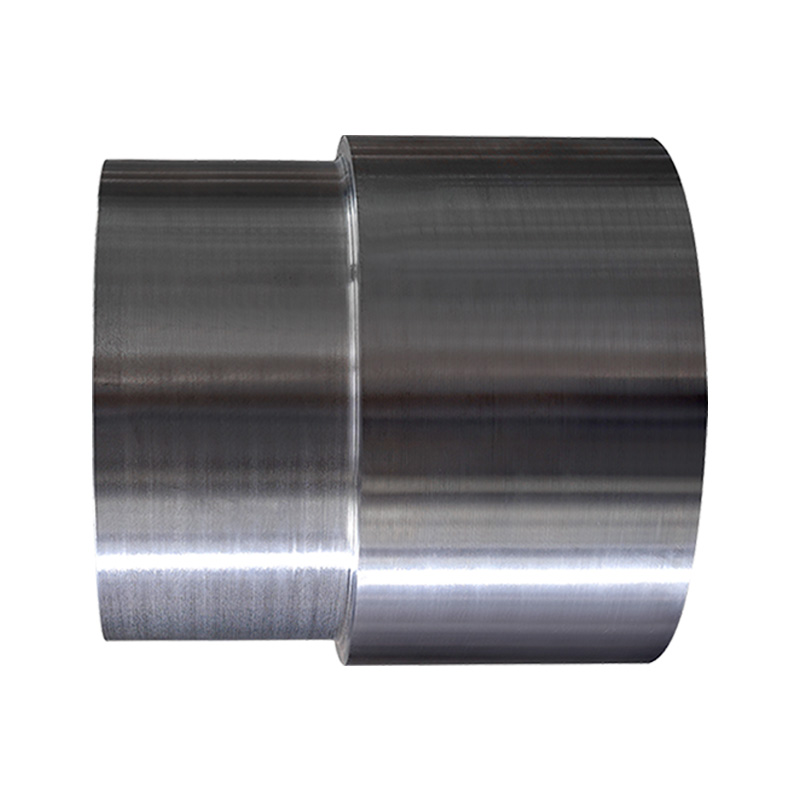We need to consider the material issue of mining machinery forgings. Material is the core element that determines the performance, lifespan, and reliability of forgings. In harsh mining environments, selecting the wrong material can directly lead to equipment failures, production shutdowns, and even safety accidents. The following are the key reasons to consider material issues (introduced in points):
1. Coping with extreme working conditions:
High intensity demand: Mining machinery can withstand huge impacts, vibrations, and loads (such as crusher jaws, mining excavator bucket teeth). The material must have sufficient strength and toughness, resist deformation and fracture, and prevent catastrophic failure.
High wear resistance requirements: Equipment components (such as crusher hammers, liners, and conveyor chain links) continuously rub and wear against hard ores and rocks. Materials with high hardness and wear resistance (such as specific alloy steel or high manganese steel) must be selected to significantly extend the lifespan of components and reduce replacement frequency.
Corrosion resistance challenge: In humid, acidic, alkaline, or chemical mining environments (especially in the beneficiation process), materials need to have good corrosion resistance to prevent rapid damage or strength loss of components due to corrosion.
2. Ensure specific functions:
Different components, different requirements:
Key load-bearing components (connecting rods, shafts): The core requirements are high strength and toughness to ensure that fatigue fracture does not occur under repeated impacts.
Direct wear parts (hammer head, lining plate, toothed plate): The core requirements are high hardness and high wear resistance to resist material wear.
Connecting fasteners (bolts, pins): High strength, good toughness, and appropriate hardness are required to ensure reliable connection and resistance to shear.
The material selection must be closely combined with the functions and stress characteristics of the components in the whole machine, and cannot be a one size fits all approach.
3. Ensure reliability and safety:
Avoiding accidental failure: The mining operation environment is dangerous. Once the load-bearing or moving parts suddenly break due to material defects (such as internal cracks, insufficient toughness), it is highly likely to cause serious equipment damage or even personal injury accidents. Appropriate materials are the foundation for safe operation.
Extended service life: By selecting high-quality materials with matching performance, the overall service life of forgings can be significantly improved, reducing unplanned downtime caused by material aging and rapid wear, and ensuring production continuity.
4. Balance economy and maintenance costs:
Initial cost vs long-term benefits: High performance materials (such as special alloy steel) may have higher initial costs, but their longer lifespan, lower failure rate, less downtime, and replacement frequency can significantly reduce the overall operational and maintenance costs of the equipment throughout its lifecycle. Blindly selecting cheap and low-quality materials is not worth the loss.
5. Impact on the feasibility of manufacturing processes:
Forging performance: The malleability (such as plasticity, flowability, forging temperature range) of different materials varies greatly. The selection of materials should consider whether it is convenient to forge complex shaped components and ensure a dense and defect free internal structure.
Heat treatment response: The heat treatment process (quenching, tempering, etc.) of a material plays a decisive role in its final properties (hardness, strength, toughness). The material must have good heat treatment responsiveness in order to achieve the desired performance through process adjustments.
6. Compliance with industry norms and standards:
General requirements: The mining machinery industry has general requirements and recommended standards for key component materials. Choosing mature materials that meet these requirements is a fundamental prerequisite for ensuring component interchangeability, quality, and safety.
Avoiding risks: Using materials that have not been fully validated or do not comply with industry practices can bring additional quality and liability risks.

 英语
英语 德语
德语 阿拉伯语
阿拉伯语












